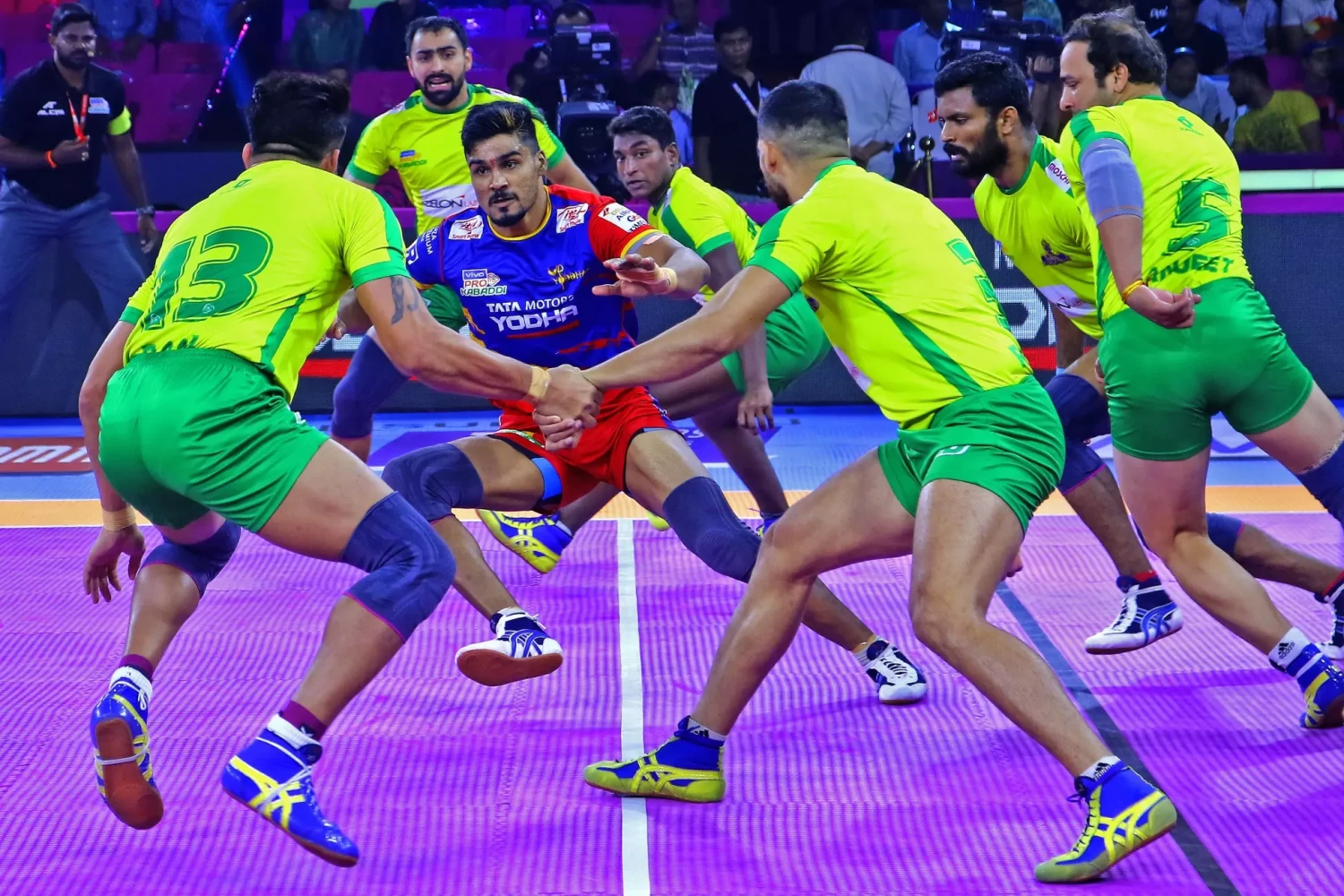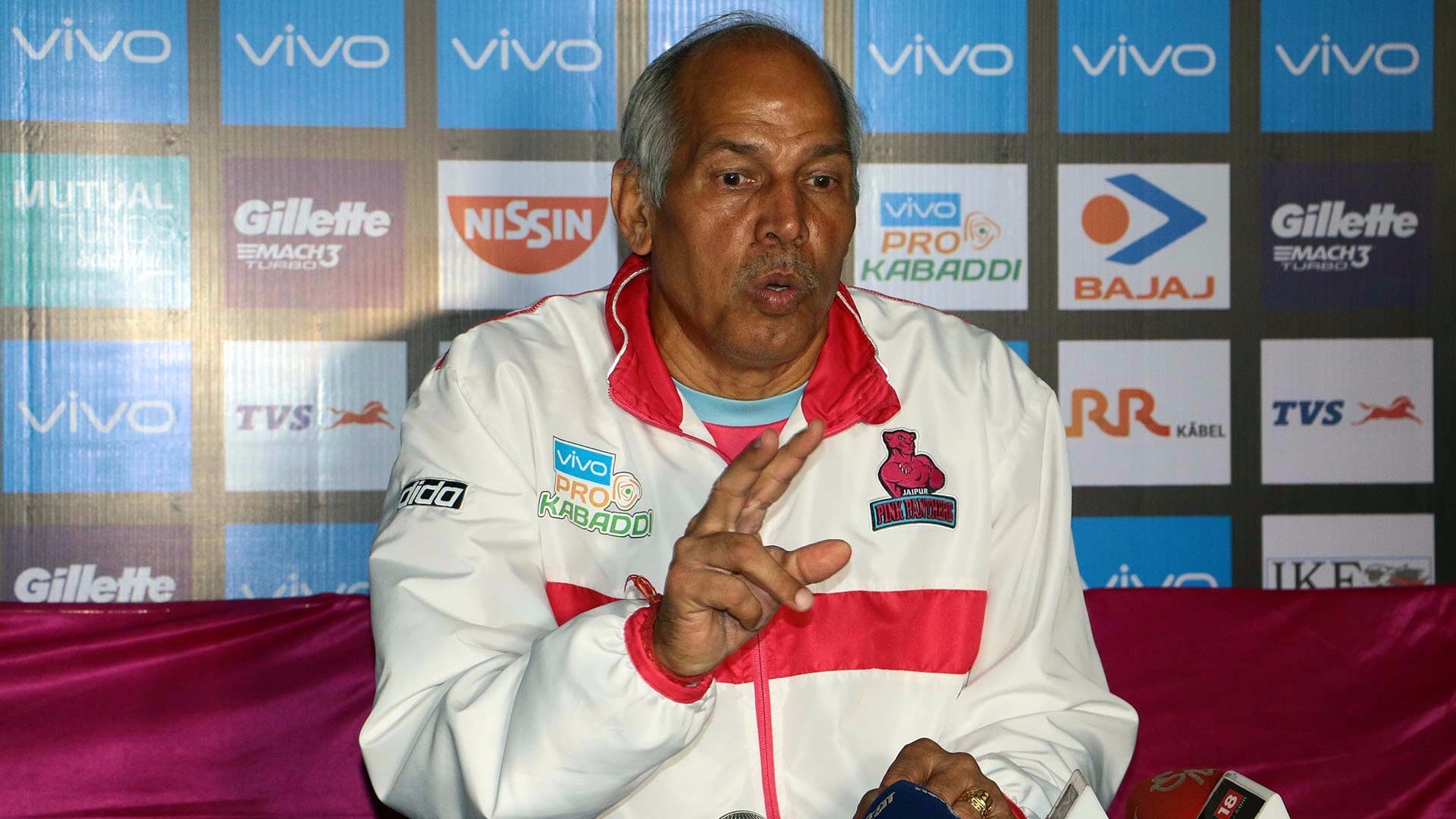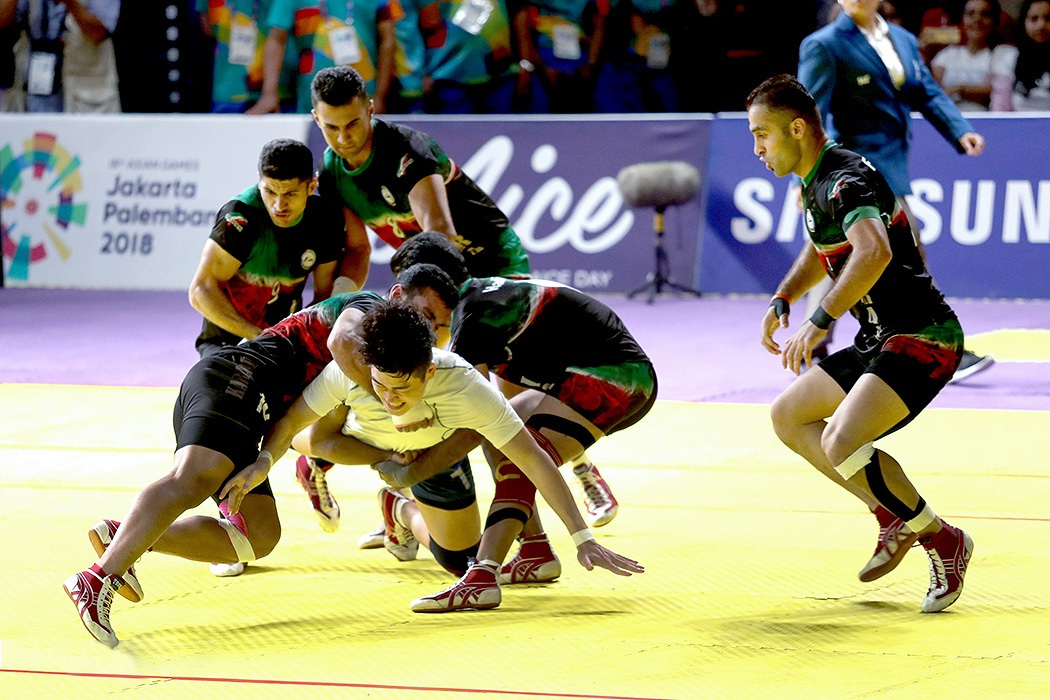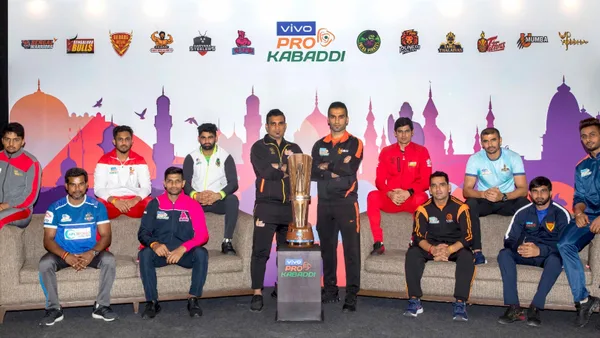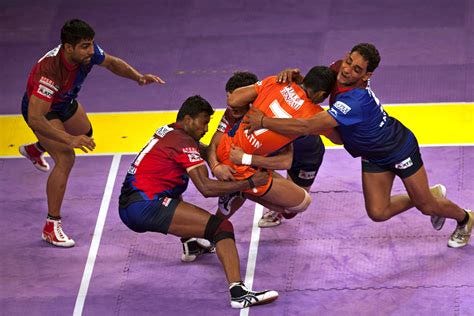Sportsmanship is one of the fundamental principles that define the spirit of any sport, and Kabaddi is no exception. While the intensity and competitiveness of the game are at the forefront, the way players conduct themselves on and off the mat plays a crucial role in maintaining the integrity of the sport. This article delves into the importance of sportsmanship in Kabaddi, how the sport teaches players important life values, and how it fosters respect and integrity.

- What Is Sportsmanship in Kabaddi?
In Kabaddi, sportsmanship refers to the conduct, attitudes, and ethics that players demonstrate during the game. While winning is a goal for all players, the manner in which one wins—or loses—can significantly impact the spirit of the sport. Kabaddi teaches players not only to be tough competitors but also to respect their opponents, follow the rules, and uphold the honor of the game.
Key Components of Sportsmanship in Kabaddi:
- Respect for Opponents: A true sportsman respects his opponents, acknowledging their skill and sportsmanship. In Kabaddi, players often shake hands or share a gesture of respect after intense matches, regardless of the outcome.
- Respect for the Rules: Kabaddi has a strict set of rules, and abiding by them is essential for maintaining fairness in the game. Cheating, foul play, or dishonesty not only undermines the integrity of the sport but also the respect players have for one another.
- Integrity: Kabaddi teaches players to play with integrity, ensuring that they honor the spirit of fair play. This includes being honest during raids, tackles, and respecting the decisions made by the referees.
Advanced Tips for Kabaddi Players:
- Embrace Fair Play: No matter how competitive the match is, always prioritize fairness. A fair game ensures that all players enjoy the sport and grow through the experience.
- Demonstrate Respect: Whether winning or losing, players should always respect the efforts of their opponents. Acknowledge their skills, congratulate them on a good play, and appreciate the competitive spirit.
- Sportsmanship as a Tool for Player Development
Kabaddi, much like any sport, is a platform for personal growth. The lessons learned on the mat often extend beyond the game and influence a player’s behavior off the field. Sportsmanship teaches players essential life skills, such as respect, humility, responsibility, and teamwork.
The Life Skills Developed Through Kabaddi Sportsmanship:
- Humility: A true sportsman shows humility, both in victory and defeat. Kabaddi players learn that while winning is important, how one conducts themselves during victories or defeats matters just as much.
- Teamwork: Sportsmanship in Kabaddi is deeply tied to teamwork. The sport is designed to foster collaboration, and players learn to work together to achieve common goals while maintaining a sense of fairness.
- Respect for Authority: Kabaddi players respect their coaches, referees, and the rules of the game. This respect extends into their personal lives, helping players become more respectful and disciplined individuals.
Advanced Tips for Kabaddi Coaches:
- Teach Humility Through Role Models: Coaches should highlight the importance of humility by showcasing the behavior of sportsmanlike players. Encourage athletes to lead by example and foster a culture of mutual respect among the team.
- Encourage Responsibility: Empower players by teaching them to take responsibility for their actions both on and off the mat. Responsibility and accountability are key components of sportsmanship that translate well to life beyond the sport.
- The Role of Kabaddi in Building Character
Kabaddi’s fast-paced and physical nature makes it a perfect vehicle for building character. Through every raid, tackle, and defensive move, players are taught to manage emotions, stay disciplined, and make decisions under pressure. This combination of physical and mental endurance helps players develop resilience and perseverance—key traits that form the foundation of good sportsmanship.
Building Character Through Kabaddi:
- Resilience: Kabaddi requires players to endure physical strain, intense competition, and high-pressure situations. Overcoming these challenges on the mat builds resilience, teaching players how to bounce back from setbacks in both the game and life.
- Discipline: Successful Kabaddi players must follow a disciplined training regimen and maintain their focus throughout the match. Discipline is critical in maintaining high levels of performance and sportsmanship.
- Perseverance: Kabaddi often involves moments of failure, such as a missed tackle or a failed raid. Perseverance allows players to recover from these moments and continue pushing forward, demonstrating resilience and commitment to their team.
Advanced Tips for Kabaddi Players:
- Cultivate Mental Strength: The mental aspect of Kabaddi is just as important as the physical. Players should focus on building resilience, mental toughness, and emotional control through their training.
- Stay Disciplined: Discipline off the mat is just as important as discipline on it. Kabaddi players should maintain a healthy lifestyle, proper training routines, and an unwavering commitment to their goals.
- Teaching the Next Generation of Players the Importance of Sportsmanship
As Kabaddi continues to grow in popularity, it is essential to teach the next generation of players the importance of sportsmanship. Future players will shape the future of the sport, and ensuring that they understand and value fairness, respect, and teamwork will help maintain the integrity of Kabaddi for years to come.
Promoting Sportsmanship Among Youth:
- Positive Role Models: Coaches, parents, and senior players should serve as positive role models by demonstrating good sportsmanship both on and off the mat. Leading by example ensures that young players understand the importance of respecting the game and their opponents.
- Promoting Fairness: Encourage young players to focus on fairness and integrity, teaching them that winning with dignity is more important than winning at any cost.
- Creating a Supportive Environment: Kabaddi should be played in a supportive environment where every player feels valued. Fostering a sense of community and respect among players promotes sportsmanship and helps build better players.
Advanced Tips for Kabaddi Coaches and Mentors:
- Incorporate Sportsmanship into Training: Coaches should incorporate discussions of sportsmanship into training sessions, reinforcing the idea that fair play is as important as technical skill.
- Encourage Positive Reinforcement: Praise players for showing respect, maintaining good conduct during matches, and helping others. Positive reinforcement helps instill the right values in young athletes.
- The Global Impact of Kabaddi Sportsmanship
As Kabaddi expands globally, its emphasis on sportsmanship has become an important part of the game’s appeal. Countries like Iran, South Korea, and the United Arab Emirates are embracing the sport, and sportsmanship remains a key factor in these international competitions. Kabaddi’s values are being shared globally, and this has contributed to the sport’s international success.
The Global Embrace of Kabaddi Values:
- Respecting the Opponent: In international Kabaddi tournaments, players from diverse cultural backgrounds come together, each bringing their own style of play. The mutual respect among players, regardless of nationality, strengthens the global appeal of the sport.
- Fair Play Across Borders: The principles of fair play, integrity, and teamwork are universal, and as Kabaddi spreads to different countries, these values are being shared and embraced, ensuring that the sport’s ethical standards are upheld.
Advanced Tips for Kabaddi Players:
- Adapt to Global Standards: As Kabaddi becomes a global sport, players should learn to respect international playing styles and the cultural norms of their opponents. This helps promote the values of sportsmanship and enhances the global appeal of the sport.
